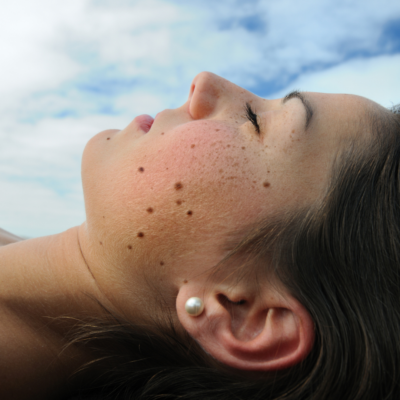How Stress Destroys Your Skin
When it comes to keeping enjoying healthy skin, you probably already know how important it is to follow a good skin care routine and of course, to apply sunscreen regularly. But did you know that stress can also have a huge impact on your skin? Unfortunately, stress related skin issues are often a big problem. In some ways it’s direct. In others, the impact creates a number of other habits that can cause skin problems over time.
In this installment we sit down with California Skin Institute’s Dr. Todd Anhalt to learn more about the subtle ways stress can affect how your skin functions.
Q: Is stress really that big a deal when it comes to skin care?
Dr. Anhalt: Yes, it actually plays a very big role. We now know that stress isn’t a just a mental state, and it’s not “all in your head.” The big part that doesn’t get discussed enough is the physiological response. The body enters a state of arousal, which is an evolutionary outgrowth that helped our ancestors survive in the wild and escape predators. So what you get is a lot of hormones, including adrenaline, which help manage the stress.
Q: What are some of the effects of these hormones on the skin?
Dr. Anhalt: There are many effects actually. For example, stress can make you sweat a lot more. You might not even notice it much, because it’s not the same sweating you get from a workout. If you want to see how it works, go on YouTube and watch someone skydive, you’ll have sweaty palms in less than a minute. It’s just the body’s response and it happens all over your skin. If you’re experiencing this response on a regular basis because of stress, it can exacerbate conditions like acne, eczema and psoriasis.
It also leads to rashes, which can really put the patient into a bad cycle. For example, a patient has a skin condition like psoriasis, which itches a bit. Increased stress will increase sweating and overall itching. This causes the patient to scratch the area more often, which in turn makes the condition worse and makes it itch more. So you start out with a little bit of stress and end up with broken, inflamed skin. But most patients don’t realize the two things are related.
Q: Does stress have an effect beyond sweating?
Dr. Anhalt: Definitely. The other things you get with stress are a bit more indirect. Stress hormones can raise your blood pressure and can affect your ability to sleep. Also, as your body tries to deal with stress, you’ll find yourself reaching for unhealthy foods. This really robs your body and skin of vital nutrients. And sometimes it’s not even about wanting the unhealthy food…You’re just too stressed to take the time for a proper meal, so you end up eating junk.
Q: How many of your patients have skin concerns that are at least partly caused by stress?
Dr. Anhalt: I would say about 60%. It’s really a staggering figure when you think about it, but you can’t have stress hormones in your body all the time without it manifesting in some way on the skin. And keep in mind, the skin is just an outward lens into our bodies. It’s an organ that is very visible to us. But other organs in the body are affected by stress as well.
Q: How do you help patients whose skin conditions are related to stress?
Dr. Anhalt: If we find that someone’s skin condition is linked to stress, then the stress has to be addressed as part of the treatment. This usually means doing things like meditation and practicing mindfulness. It’s amazing what a difference it can make when you know how to stop for a moment and realize you’re experiencing a physiological stress response. Just noticing it can put the brakes on the physical changes.
But unfortunately, a lot of people self medicate for stress from early on in their lives. Maybe it’s through cigarettes, alcohol, abusing prescription medications, or a poor diet – the negative results of these stress-mitigating habits can really add up over time. I mean, consider smoking…They don’t call them “smoker’s lips” for nothing.
Also, there’s evidence that treating some skin conditions can reduce stress. For example, if someone has a rash and we treat it, the underlying anxiety about the condition goes away. Or if you have acne and you’re self conscious about it – that will also cause anxiety. So it’s very interrelated – your skin condition can affect your stress levels and vice versa.
Q: What would you say to someone who is under stress but hasn’t taken the steps to mitigate it?
Dr. Anhalt: I think it’s very important for people to realize that stress isn’t something to just brush aside. It just affects your entire being, your mind and your body. And the other thing to keep in mind is that reducing stress doesn’t necessarily mean reducing your workload. There are things you can do – small things that take little time out of your day – to reduce the physiological effects of stress and the hormonal response.
So you really have to take care of it. Because if you don’t love yourself enough to mitigate the stress in your life, you’re setting yourself up for serious health problems down the line. And you only get one life, so it’s important to take care of yourself.
(Dr. Todd Anhalt is a board-certified dermatologist who has been helping patients treat stress-related skin issues, and many other skin conditions for over 20 years. In addition to healing patients, Dr. Anhalt also serves as a Clinical Professor Emeritus of Dermatology at Stanford.)
Individual results may vary and are not guaranteed.



 / 291 Reviews
/ 291 Reviews